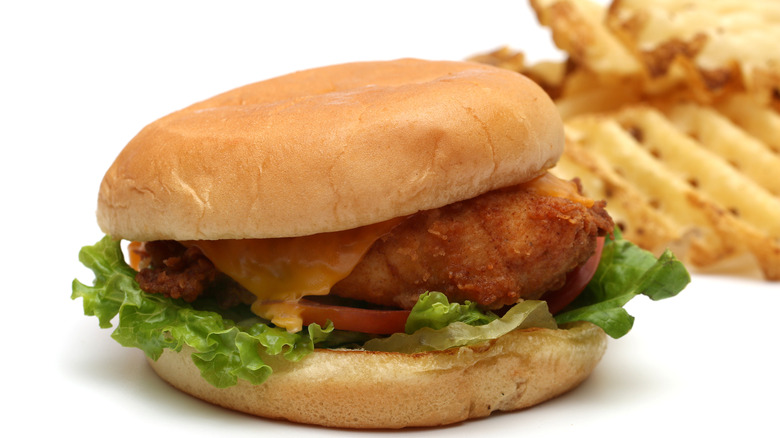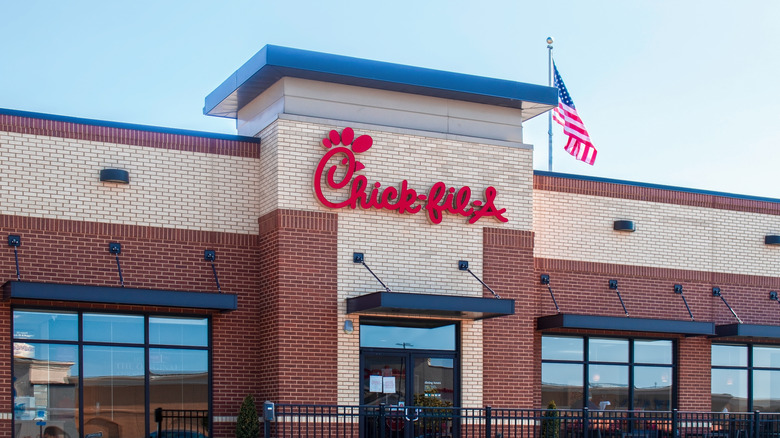Chick-Fil-A Just Announced A Major Change To Its Chicken
Chick-fil-A has long been regarded as the king of fast food chicken sandwiches. The chain has seen explosive popularity on the back of its chicken sandwich reputation, to the point where there are now only two states that don't have a Chick-fil-A. One reason for that has been the quality of its chicken itself, viewed by many as superior to others thanks to the company's extremely particular approach to its product. In 2014, Chick-fil-A pledged to make all of its chicken antibiotic-free by 2019.
Now, though, the company has decided to go back on that pledge — sort of. In a statement, Chick-fil-A has announced that starting in the Spring of 2024, it will amend its commitment from "No Antibiotics Ever" (abbreviated to NAE) to "No Antibiotics Important to Human Medicine" (NAIHM). According to Chick-fil-A, this is the result of supply issues, and whether the company can even procure enough 100% antibiotic-free chickens.
Major poultry producers like Tyson that had been moving away from antibiotic use in chickens have decided to utilize antibiotics again, but not those important to human medicine. In Chick-fil-A's statement, antibiotics are still a concern: Its policy (and the NAIHM label more broadly) "allows use of animal antibiotics only if the animal and those around it were to become sick."
The NAIHM distinction is important
Overuse of antibiotics important to human medicine in livestock can lead to potentially significant issues as traces are left in the meat we eat. According to the National Institute of Health, "With regard to human health risks, antibiotic residues induce and accelerate antibiotic resistance development, promote the transfer of antibiotic-resistant bacteria to humans, cause allergies (penicillin), and induce other severe pathologies, such as cancers..." Chick-fil-A will still enforce the NAIHM requirement.
In accordance with the company's internal Animal Wellbeing Standards, Chick-fil-A was also quick to note that it still won't be using meat with fillers, hormones, steroids, or artificial preservatives. Chick-fil-A's standards here are high for the industry, requiring that suppliers (who are only ever domestic to the U.S.) utilize climate-controlled, cage-free environments, as well as raise their chickens with both adequate nutrition and a minimum of stress on the animals themselves. Animals still sometimes become sick even outside the confines of the factory-farming system, and Chick-fil-A's new policy appears to be aimed at allowing them to be treated with antibiotics — not important to human medicine — without compromising the company's quality standards.

